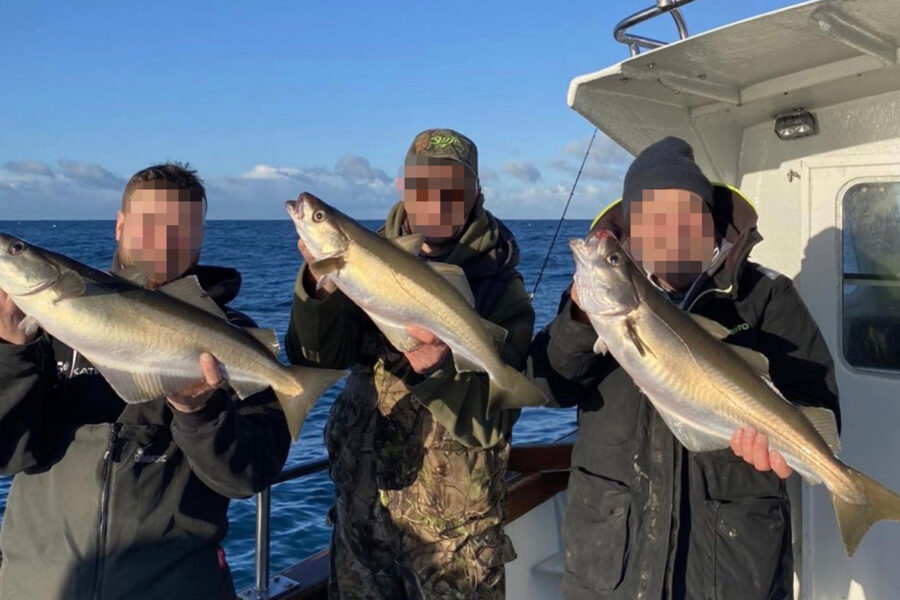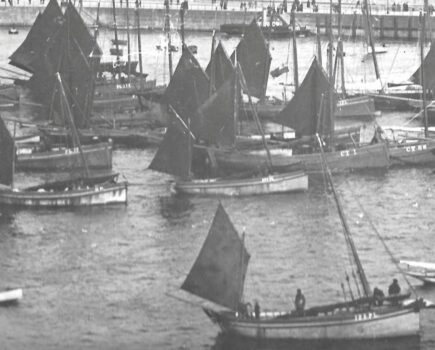Forty of the 62 registered boats at the Cornish port of Mevagissey are now ‘under serious financial pressure’ following the imposition of the zero TAC on pollack fishing for 2024.
Chairman of Mevagissey Fishermen’s Association Nick West says he fears that harsh restrictions on commercial pollack fishing could continue for years.
Despite 100kg per boat per month being allowed as a bycatch, many Mevagissey inshore fishermen now fear for their future. Skipper Will Shugg of the 21ft vessel Radjel FY 270 told Fishing News: “Even though I work single-handed, being prevented from pollack fishing at this time of year will deliver financial suicide. With the seasonal closure of bass fishing just around the corner, without pollack, what can we do? If they want us to choose other species to fish for, please tell us what those species are.
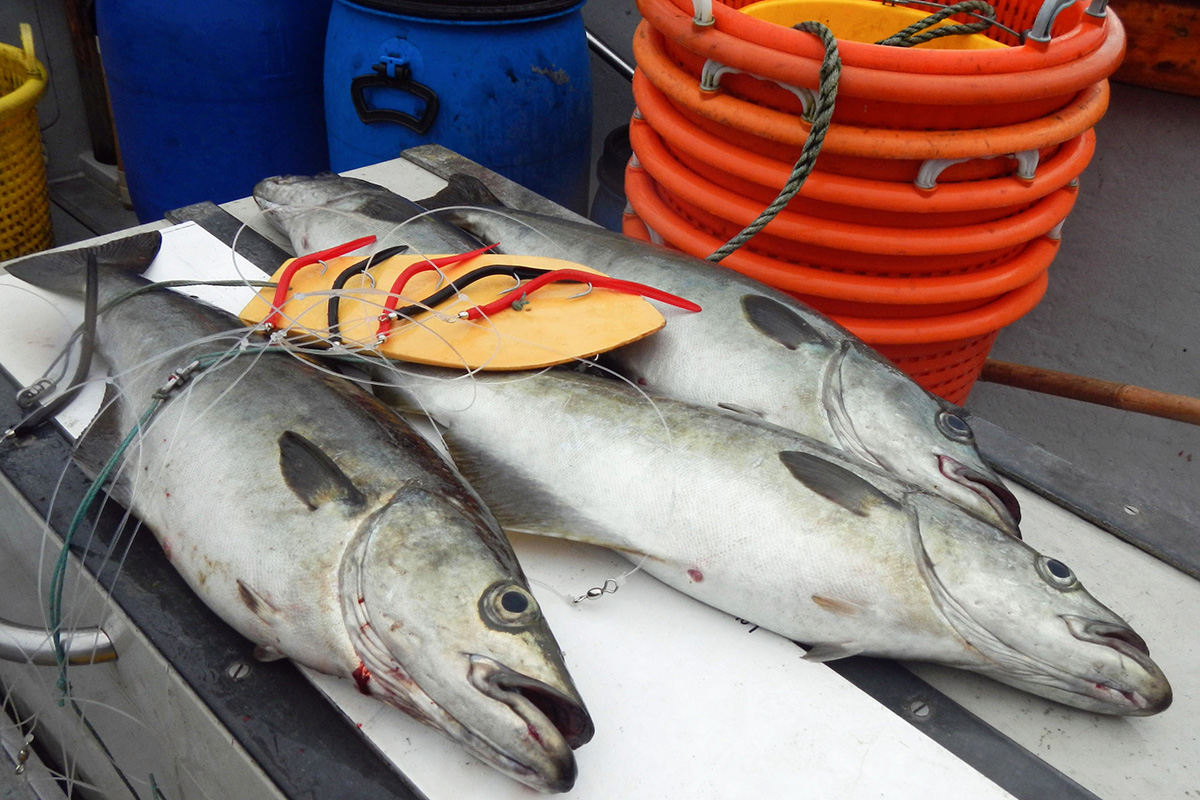
A good day’s catch using a pollack board is ‘nothing compared to the amount caught by a sea angling charter boat’, said one Mevagissey skipper.
“For gill-netters and line boats alike, between 1 February and 31 March we cannot fish for bass, and pollack is our only alternative. The 100kg monthly bycatch allowance is so small that we have little alternative but to stay ashore. There are no other species abundant enough at this time of year to take the place of pollack.”
“How can fishermen cope without any warning?” asked Nick West. He added: “After having a reasonable quota on pollack fishing for so many years, it then becomes a zero overnight – that can bring nothing but serious financial trouble.
“Some of the bigger U10 boats in this region were catching 10t to 15t of pollack per month – then, without a hint of consultation, they were told that they can no longer fish for pollack. It is like turning off a tap.
“I sat in every Defra/MMO meeting on the ICES advice. We were all told that fishermen who depend upon fishing for pollack must diversify. But if skippers diversify – and many small boats cannot – it just puts pressure on other species.
“Cornwall IFCA was engaged in the talks prior to the pollack ban coming into force. It supported our offers – to considerably increase to 6in the mesh size of gill-nets used, plus a significant increase in the minimum landing size of the pollack we catch.
“We even offered a close season on pollack fishing in February and March, to begin with immediate effect – a scheme similar to the close season on bass. These offers were not even considered by Defra/MMO, claiming that their hands were tied, and that they feared legal action against the UK if it did not stick to the ICES advice.
“While the pollack ban was triggered by catch data of bigger boats across the EU, like wreck-netters, the authorities have totally ignored the many handline boats to which pollack is essential, particularly the boats in Cornwall. Almost all of those small boats at this time of year gradually move toward doing nothing but line fishing for pollack.
“Equally, smaller boats that undertake gill-netting for pollack need support too. Many work single-handed, and there’s fish out there to catch – the local stocks are healthy.”
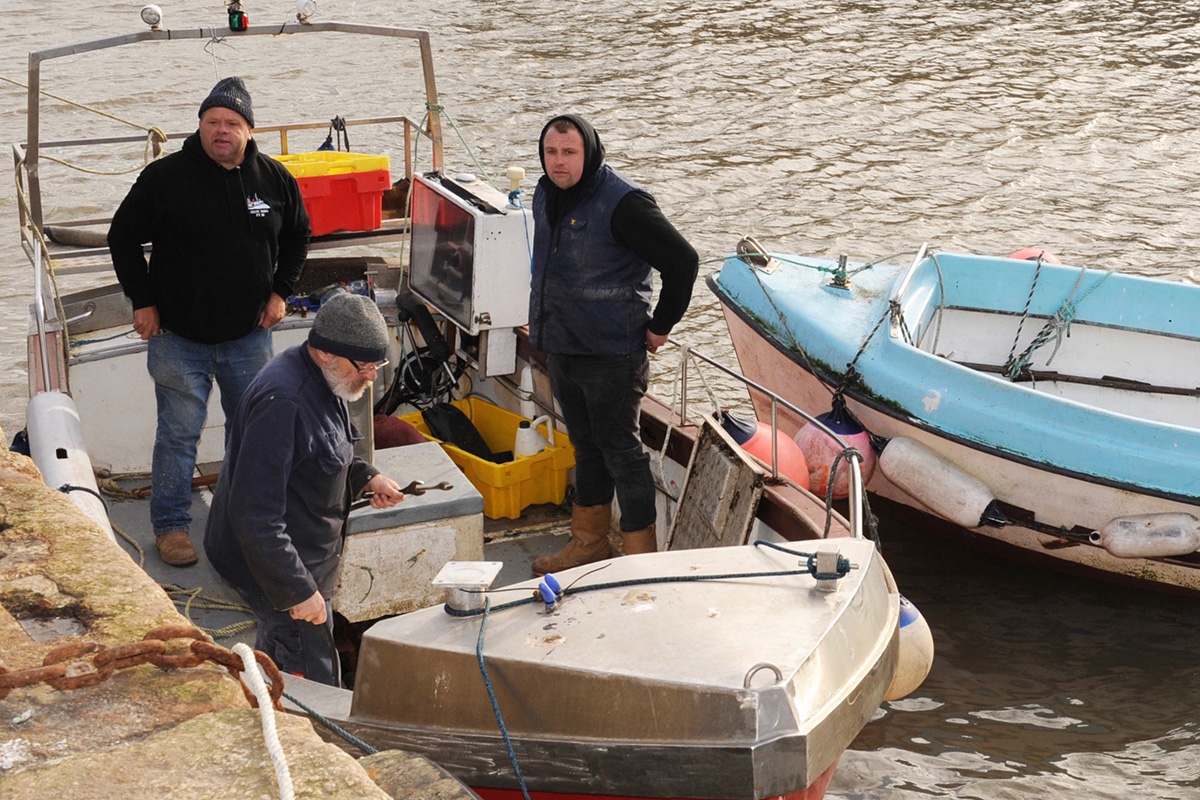
Mevagissey inshore fishermen coming back to the quay after checking their boats, which have been weather-bound for several weeks. A pollack ban will cause significant hardship at the port.
Skipper Will Shugg added: “As an example, two days ago I hauled just two tiers of bass nets and had 50kg of nice pollack too – but that’s half of my monthly allowance on pollack. Effectively, pollack has become a choke species.
“Of the bigger netters at Mevagissey, some go wreck-netting where the catch is 90% pollack. What are they going to do? Those boats are still too small to fish for different species like hake in distant water.
“Here, there is an occasional net fishery for herring. No one has yet found sufficient herring to turn to the fishery, but if we do, boats that normally fish for pollack will have no alternative but to join the herring fishery, a lot of fish will be landed, and the price will plummet. Then we will be back to square one – there is not a realistic alternative to pollack.
“Last winter, as soon as the bass season finished, I turned to fishing for pollack. On a good day I caught 50kg of pollack, and with prices from £4/kg, it was a fair wage. Such fishing is of no damage to the stock.
“But consider some of the bigger charter boats from other ports where they take 10 anglers a long way offshore to the wrecks, and come back with huge weights of pollack. At present there’s nothing to stop the charter skippers doing that.”
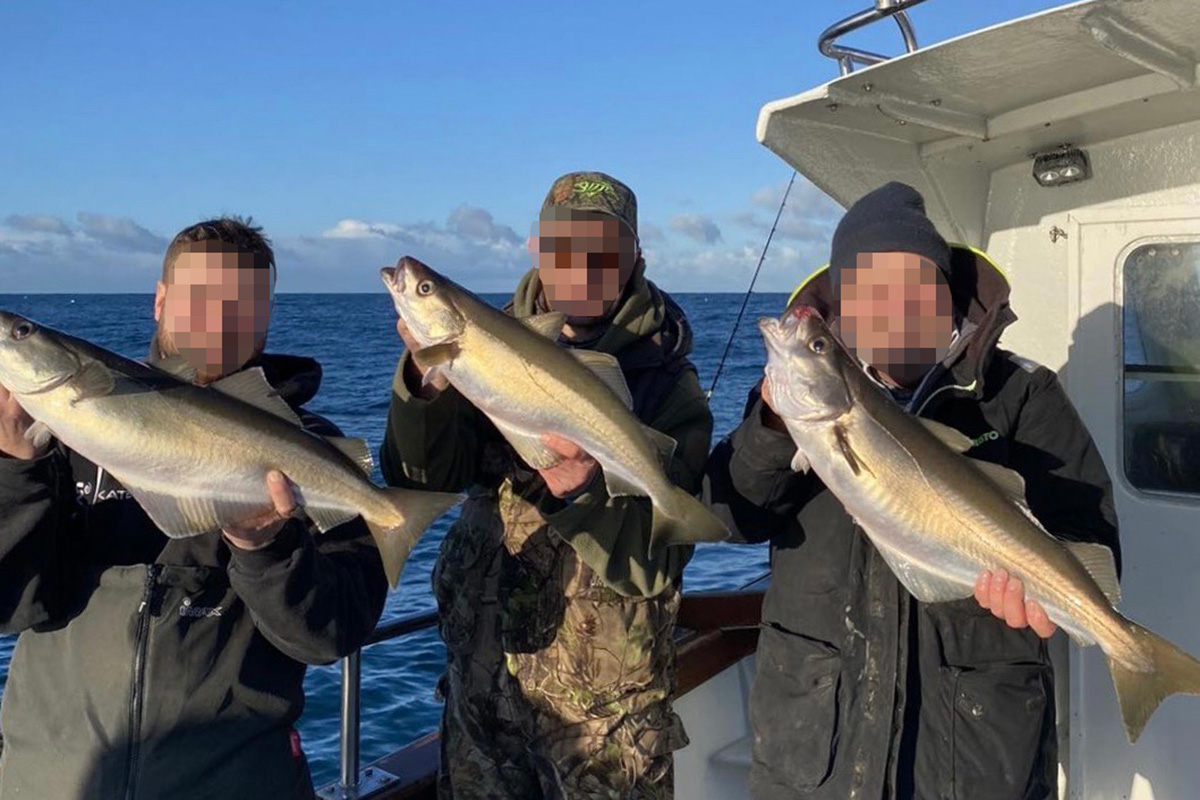
Pictured here are three happy anglers with just some of the pollack they took on their first charter trip of 2024, landing the fish in Cornwall in front of commercial fishermen unable to target the species, and restricted to landing just 100kg a month as bycatch.
Mevagissey harbour master Andrew Trevarton said that the pollack ban will reduce the harbour’s income by ‘at least 20%’. He added: “Pollack landed into Mevagissey is a significant factor in the working of the harbour. Pollack landings account for around a fifth of the port’s yearly income.
“Whether pollack landed here are gill-netted, line-caught or trawled, it is a vital species to the turnover of Mevagissey harbour. In turn, that money underpins the local economy.
“As an example of our fears – as one of the biggest gill- netters from Mevagissey no longer has the chance to fish for pollack, its skipper may take the boat to Newlyn and join the fleet working further offshore for hake. Fish caught by that boat is likely to be landed in Newlyn. We as a harbour will lose that income. Our worry is that skippers of other boats big enough to fish further offshore may make a similar move, and leave Mevagissey forever.”
Nick West concluded: “Sadly, I think pollack fishing will become similar to bass fishing. Problems with both the quota and its controls will not go away. I fear we will be in the same position next year and for years to come – I don’t think pollack fishing will ever return to what it was before. I hope I’m wrong.
“While Defra has imposed the pollack ban on commercial fishing, what has it done about recreational fishing, and particularly the charter boats? So far, nothing. For recreational anglers it is an open fishery, and Defra must consider that.”
This story was taken from the latest issue of Fishing News. For more up-to-date and in-depth reports on the UK and Irish commercial fishing sector, subscribe to Fishing News here or buy the latest single issue for just £3.30 here.
Sign up to Fishing News’ FREE e-newsletter here.

